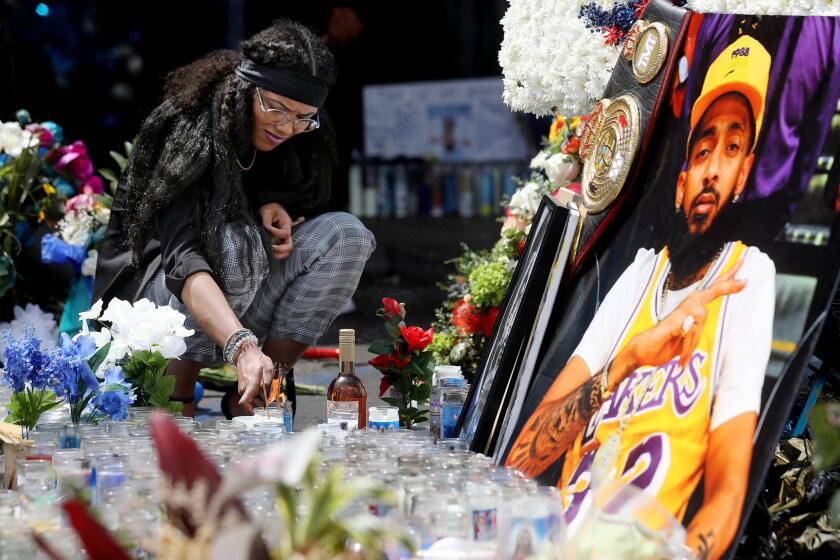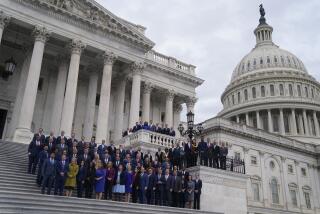In 2019, the urgency — and hysteria — of the news overshadowed rare moments of beauty

- Share via
We could be forgiven for not noticing. The world is, after all, too much with us.
Caught up in the daily clamor, rising and falling in counterpoint to the news, we lost sight of the good for the bad, the extraordinary for the ordinary, the sacred for the profane.
When scientists in April displayed the first photograph of a black hole like the eye of Sauron, all fiery and dark more than 55 million light-years away, we were consumed with a Brexit deadline.
When Ethiopians accomplished in late July a historic feat of planting more than 350 million trees in a 12-hour spree, we were consumed by a president who had just called Baltimore a “disgusting, rat- and rodent-infested mess.”
When an elite Kenyan runner breezed across the finish line, completing a 26.2-mile time trial in less than two hours, the on-again, off-again trade war with China was back in our feeds.
So it went: The urgency of the hour overshadowed the beauty of the moment.

Who knows what we missed in the 35 days that the federal government was shut down? We were caught up in the historic impasse over a $5.7-billion border wall that had left 800,000 workers furloughed, and by the time it was over, the question of the wall was still unanswered.
The debate continued throughout the year, pausing to take a breath one week in June over the photograph of Salvadoran migrant Óscar Alberto Martínez Ramírez and his daughter, Angie Valeria, drowned in the Rio Grande, a freeze-frame of heart-aching desperation.
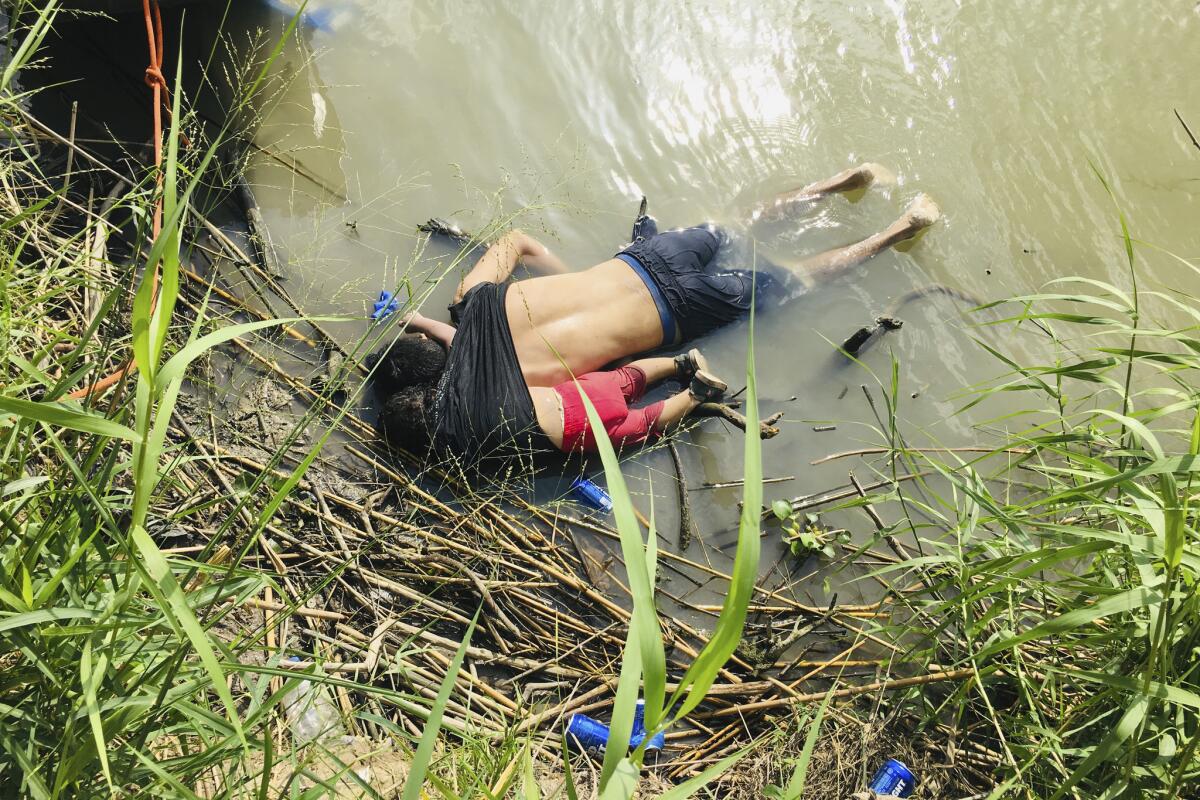
As Republicans and Democrats in Congress jockeyed over the breadth and reach of executive power, we settled down in April to read Robert Mueller’s long-awaited report, and the president retreated to Mar-a-Lago, saying that he was “having a good day.”
We were not so certain.
“The Russian government interfered in the 2016 presidential election in sweeping and systematic fashion,” it begins, and 448 pages later it ends. “[W]hile this report does not conclude that the President committed a crime, it also does not exonerate him.”
History will be the final arbiter, but the damage had been done. Institutions rely on faith, and for many, ours was shaken.
Just days before, we had woken up to images of Notre Dame Cathedral in Paris burning, its spire leaning and falling into the smoke and fiery glow.
Nothing is eternal, a truth made sadder by the loss of lives extinguished in violence.
“He was a Muslim-born Kiwi who was full of energy, love and happiness,” a family member said of 3-year-old Mucad Ibrahim, one of the 51 victims of the mosque attacks in New Zealand. Five weeks later in April, terrorists targeted churches and hotels in Sri Lanka, killing more than 250.
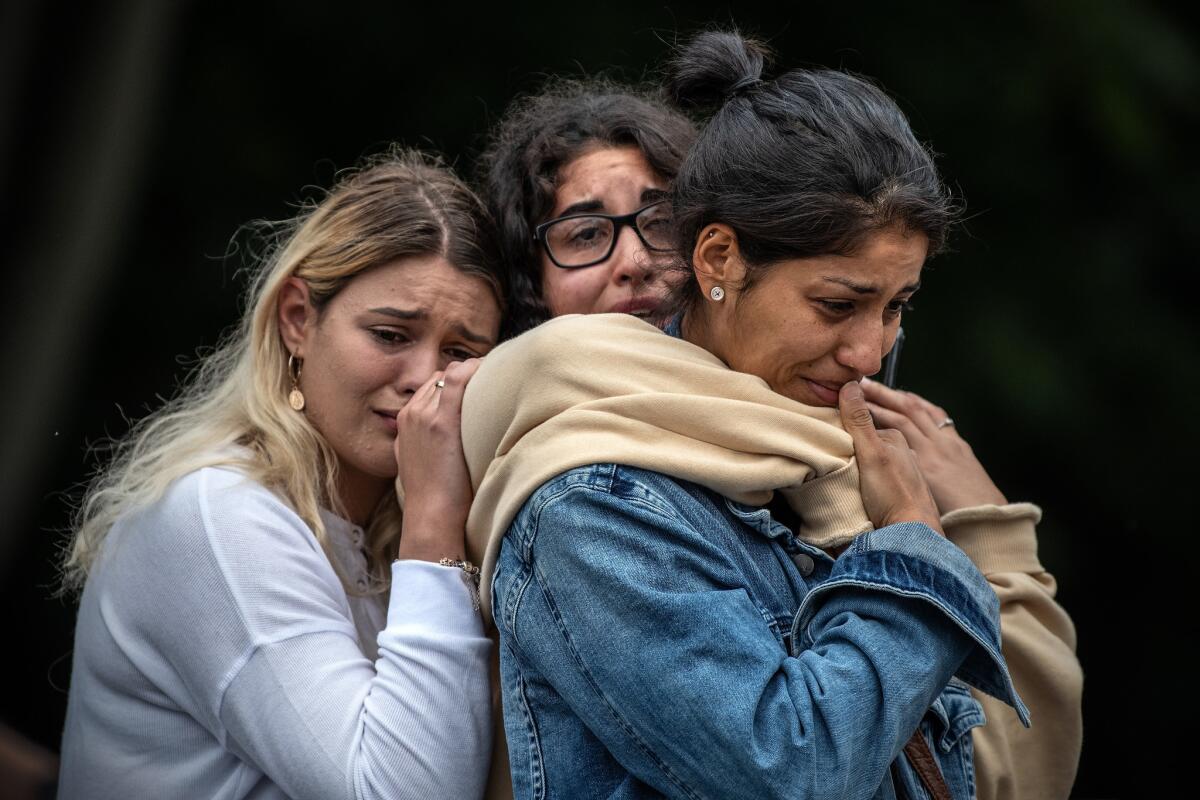
Our own season of hell arrived in the summer when over the course of seven days, mass shooters targeted a festival in California, a Wal-Mart in Texas and a historic district in Ohio: 36 dead, 68 wounded, hundreds traumatized.
Senselessness knew no limits. It reached into the halls of power.
The newly inaugurated president of Brazil, Jair Bolsonaro, promptly loosened gun laws, challenged minorities and allowed loggers, ranchers and miners to lay waste to the Amazon. Victor Orbán of Hungary cracked down on media and refugees, and Boris Johnson moved to dissolve Parliament.
Of course we laughed — we had to — at the enunciations, gesticulations and indignations of John Bercow, who retired in October as speaker of the House of Commons. His instructions over the years seemed a message for our time.
“Orrdor! Orrdor!” he shouted. “Calm yourself! Get a grip!”
If only we could.
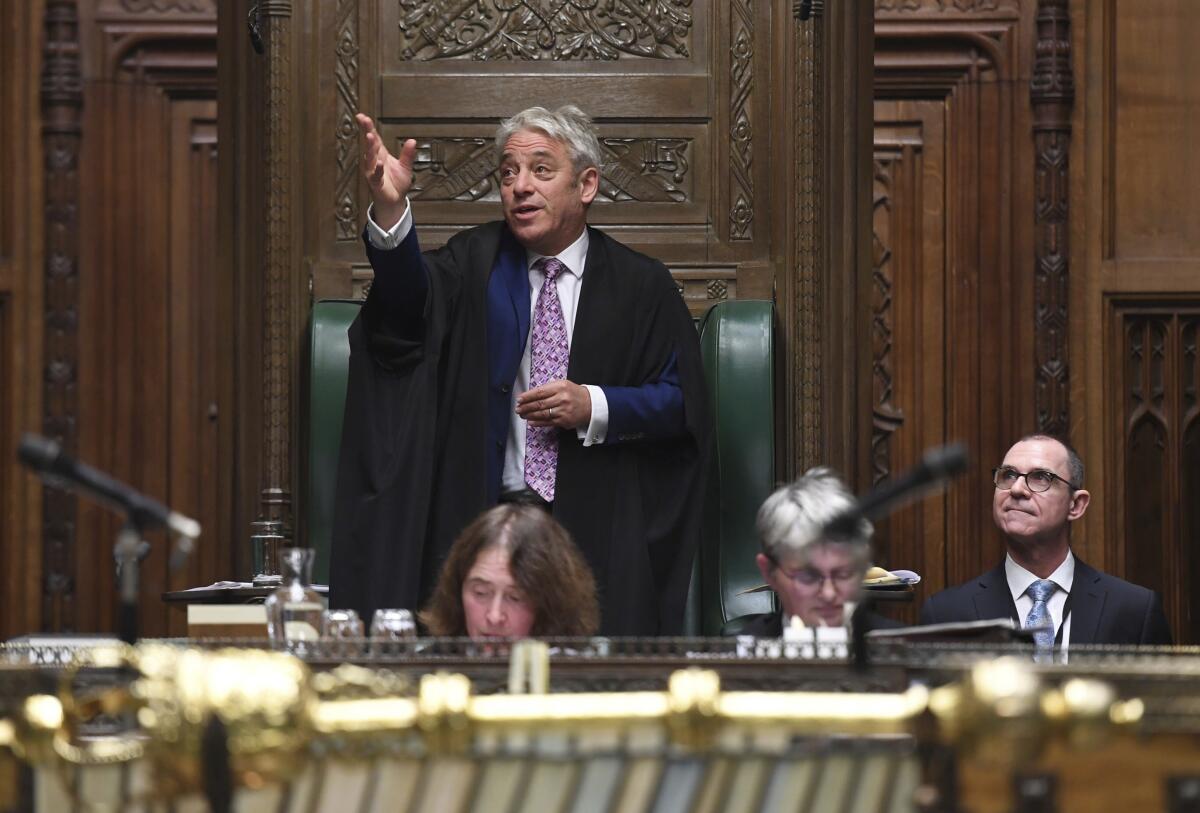
High schoolers in Orange County raised their arms in a Nazi salute. A liberal politician from Virginia tried to explain away the images of a college-era masquerade in white robes and blackface.
Parents snowplowed a path for their children into college with bribery and cheating, and the Little League World Series was rocked by allegations of sign stealing.
“… it’s unsportsmanlike, it’s dishonorable and it’s disgusting,” said Pat Dutton, manager and coach of the teenage all-stars from Goffstown, N.H.
Yes, it is.
We tried to reset our expectations but were still confounded. We never thought the Rams would score only three points in the Super Bowl or the Dodgers would lose to the Nationals in division play.

And what was to be made of President Trump, the first sitting American commander in chief to visit North Korea?
“Good to see you,” said Kim Jong-un. “I never expected to see you in this place.”
Neither did we.
But we never imagined that Los Angeles — a city once famous for making dreams real — would face a crisis as troubling and existential as homelessness. It made no sense for encampments to grow and spread even as the city and the county grew more prosperous. What would it look like, we could only wonder, when the economy started to slow?
The most read stories include pieces on Nipsey Hussle, the college admissions scandal and two very California topics: earthquakes and rising waters.
So it was all the more extraordinary that amid the storm and stress, we found our heroes.
Standing on the stage of the Scripps National Spelling Bee, they were unflinching and determined.
“Champion spellers, we are now in uncharted territory,” said the pronouncer as “auslaut” was called out in overtime. Then “palama,” “cernuous” and “odylic,” and soon eight young prodigies hoisted aloft the ceramic trophy, each named champion when none could be eliminated.
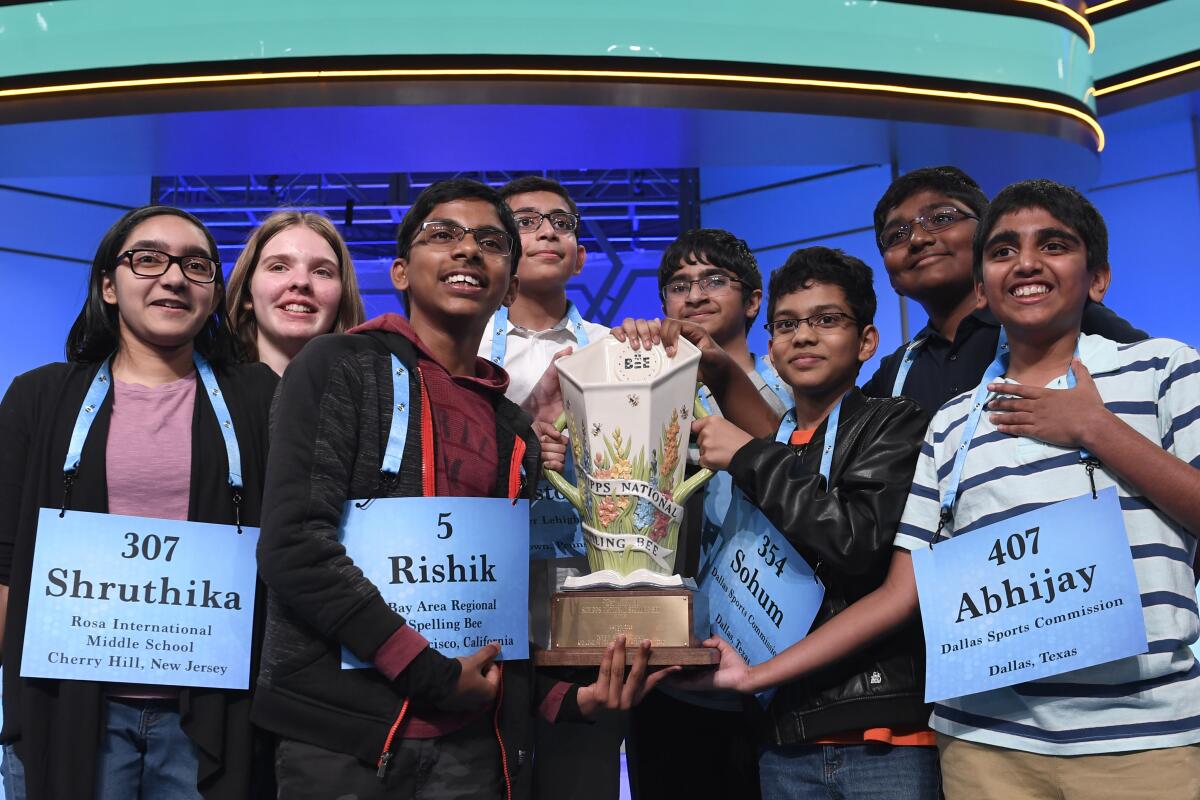
With arms outstretched, the U.S. women’s soccer team ran and danced and headed and kicked their way into another world championship even as they took on the soccer federation for gender discrimination.
Floating in space, Christina Koch and Jessica Meir became the first women to be alone in the void after more than 400 NASA spacewalks.
Called to testify during the impeachment proceedings, statesmen and career diplomats put careers and reputations at risk in service to the Constitution.
“Dad,” said Lt. Col Alexander Vindman in a rhetorical call-out to his Ukranian father, “my sitting here today in the U.S. Capitol talking to our elected professionals is proof that you made the right decision to leave the Soviet Union. Do not worry. I will be fine for telling the truth.”
Millions rose up in Hong Kong, Moscow, Iraq, Chile, Lebanon, Bolivia, Haiti and Iran, demonstrating for fairness, equity and accountability in the face of tear gas and clubs, rubber bullets and live fire.
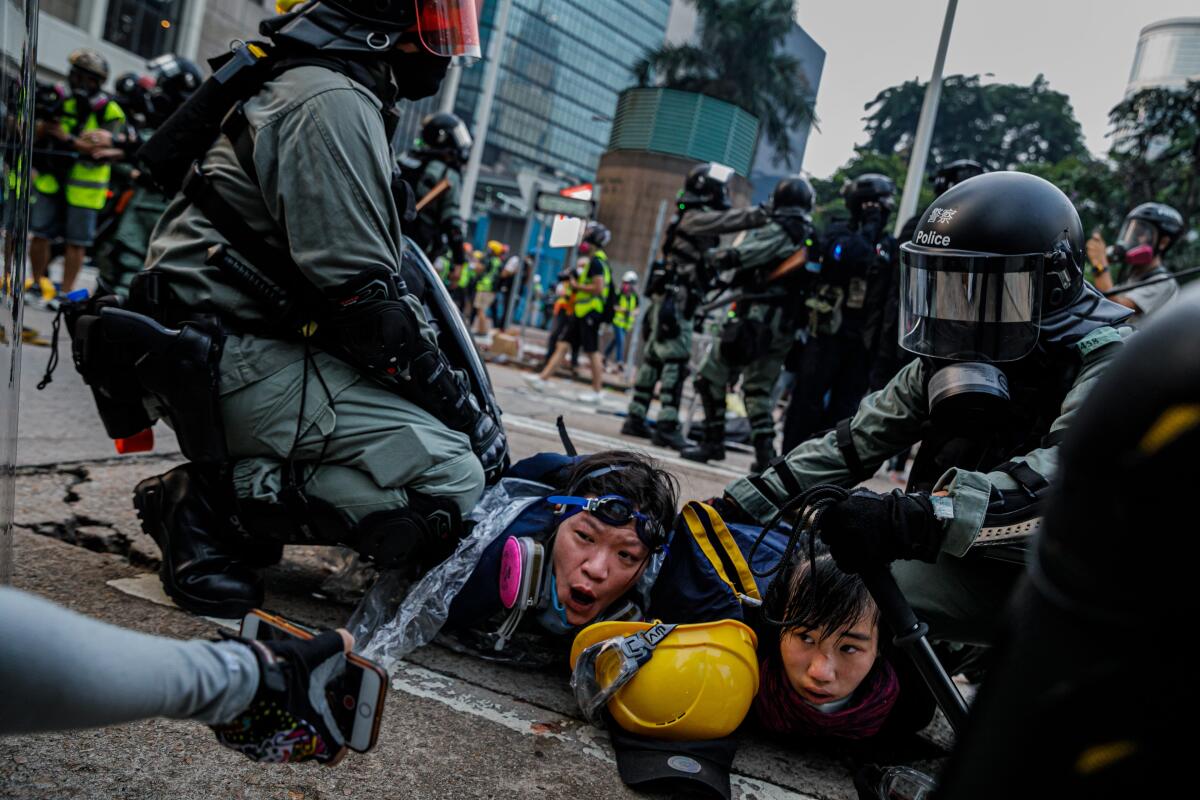
And then there was Greta.
“My message is that we’ll be watching you,” the 16-year-old Thunberg said in a speech at the United Nations, shaming prime ministers, chancellors and presidents for doing so little to stop climate change.
July had been the hottest month since the world began keeping records. There had been flooding in the Midwest, befuddlement over the path of a tropical storm and devastation in the Bahamas after Hurricane Dorian.
“We are in the beginning of a mass extinction and all you can talk about is money and fairy tales of eternal economic growth. How dare you?” she asked. “You have stolen my dreams and my childhood with your empty words.”
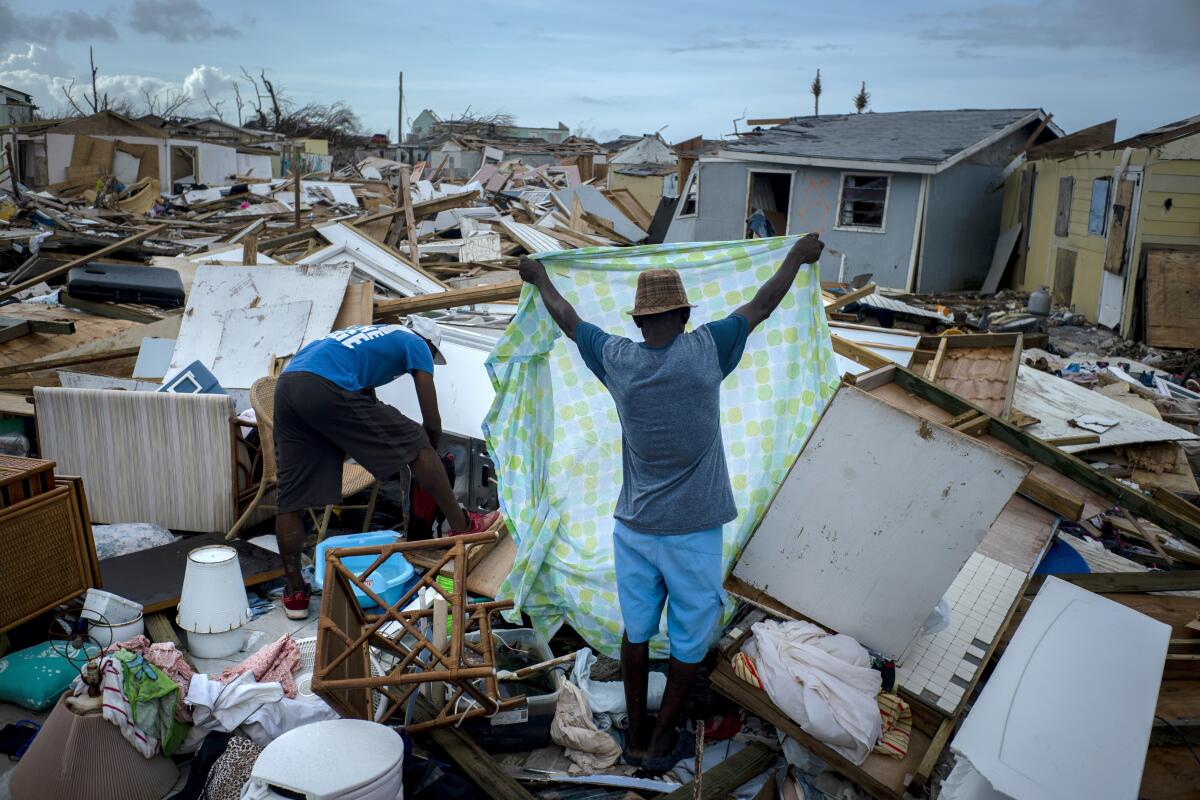
Little wonder, we found ourselves listening — and re-listening — to those whose voices had fallen silent. Their words, spoken and written years ago, reminded us that 2019 was not unique, that the need for solace, wisdom and hope reaches across time.
“Passion is never enough; neither is skill,” said novelist Toni Morrison, who died in August. “But try. For our sake and yours ... tell us what the world has been to you in the dark places and in the light. Don’t tell us what to believe, what to fear. Show us belief’s wide skirt and the stitch that unravels fear’s caul.”
Mary Oliver, the revered poet who died in January, provided the benediction: “Maybe our world will grow kinder eventually.”
Such is our wish.
More to Read
Sign up for Essential California
The most important California stories and recommendations in your inbox every morning.
You may occasionally receive promotional content from the Los Angeles Times.
